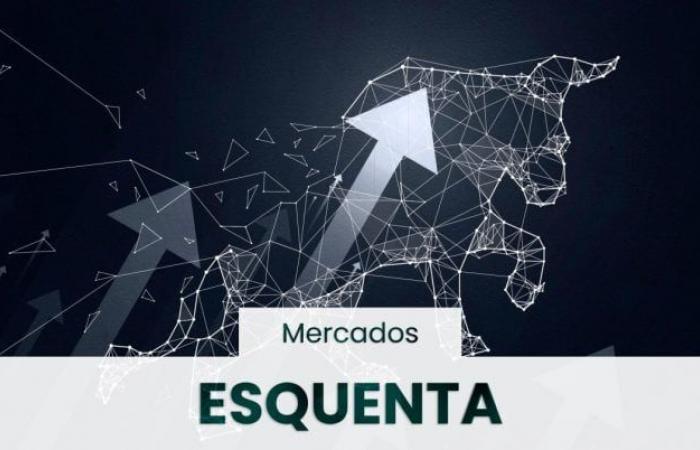
AMERICAN GDP DAY
Today, the climate in global financial markets is marked by a continuation of the tension already felt yesterday.
European stock markets are falling this morning, similar to the movement of American futures, which are also falling.
On the other side of the world, most Asian stock markets retreated today, particularly impacted by technology stocks, which reacted to the guidance disappointing from Meta (owner of Facebook) released yesterday.
These numbers have raised concerns about the potential profits that artificial intelligence can offer the technology sector, intensifying fears of higher interest rates in the United States.
Still in Asia, highlight is the devaluation of the Japanese yen against the dollar, which reached its lowest level in 34 years, at 155 yen per dollar, a level that many believe could provoke exchange rate intervention by the Japanese government.
The Meta result also cast a shadow over expected numbers from Microsoft and Alphabet (owner of Google), scheduled to be released later today.
Still in the international corporate sphere, the BHP Group approached the acquisition of Anglo American, in an operation that could be the biggest deal of the year, significantly influencing the mining sector. This event occurs on a day of less excitement for iron ore, after the gains recorded on Wednesday.
On the economic agenda, the preliminary release of US GDP for the first quarter will take place this morning and could introduce volatility to the markets, especially if the result exceeds expectations.
This data comes ahead of the March PCE price index, the Fed’s preferred measure of inflation, which will be revealed tomorrow. In Brazil, the market is still absorbing Vale’s results and the latest news on Tax Reform regulations.
Seeing…
00:57 — Advancing with Tax Reform
In the Brazilian market, the Ibovespa registered consecutive drops, closing Wednesday below 125 thousand points.
This behavior was a response to the prevailing mood of caution in global markets, with investors awaiting upcoming US economic indicators, including the Gross Domestic Product and Personal Consumption Expenditures (PCE) Price Index due out on Friday. .
This expectation fostered risk aversion, leading the dollar to rise, approaching R$5.15.
Although the losses were partially mitigated by the increase in the price of iron ore, which benefited Vale’s shares, the situation was reversed in the pre-market American this Thursday, after the release of the company’s results.
The mining company reported a profit of almost US$1.7 billion in 1Q24, representing a drop of 9% compared to the previous year, a result that, despite being in line with expectations, brought a negative outlook.
On the other hand, the political scenario in Brasília shows signs of greater cooperation between the government and Congress.
Notably, the PT is considering Marcos Pereira, from the Republicans party, as a potential successor to Arthur Lira as president of the Chamber next year, seeking to strengthen the legislative alliance.
This alignment could boost Tarcísio de Freitas, from the same party, as a possible presidential candidate in 2026, a development that the market would welcome positively, despite it still being a long way off.
Additionally, the Minister of Finance, Fernando Haddad, presented last night the most significant Tax Reform proposal.
The project establishes the basis for the implementation of a dual Value Added Tax (VAT), which will replace five current taxes — three federal (PIS, Cofins and IPI), one state (ICMS) and one municipal (ISS). The proposed rate for VAT is between 25.7% and 27.3%, with an average of 26.5%.
The president of the Chamber indicated that he intends to put the reform regulations to a vote before the July parliamentary recess, which would be an important indication of progress.
01:46 — What to expect from the American GDP
In the US, today’s long-awaited GDP report comes in a context where market agents anticipate a moderate number that could encourage interest rate cuts in the near future.
However, markets are likely to feel disappointed as the general expectation is for another quarter of economic strength.
Market consensus projects real GDP to have expanded at an annual rate of 2.2% in the first three months of 2024. This forecast is supported by the New York Fed team’s latest Nowcast and the Fed’s GDPNow forecast model of Atlanta, which this morning estimated growth of 2.7% for the quarter.
Although these projections are below the 3.4% growth recorded in the last quarter of 2023, the American economy has shown surprising resilience.
In contrast to December forecasts, which suggested growth of less than 1% for the first quarter, current performance highlights a vigorous economy, supported by a solid job market.
The strength of employment, with averages of almost 300 thousand new vacancies per month in the quarter and low unemployment rates, together with salary increases, has served as a pillar for continued consumption and, consequently, for the boost in GDP.
Additionally, the scenario is complemented by a series of important corporate results, including companies such as Alphabet and Microsoft. Other notable companies that will also release results include American Airlines, AstraZeneca, Bristol Myers Squibb, Caterpillar, Nasdaq, S&P Global and T-Mobile, among others.
02:32 — Banned
US President Joe Biden recently signed legislation that sets conditions for banning TikTok in the country unless its Chinese parent company, ByteDance, sells the app within a year. This development is a new episode in the tense relationship between the US and China, and signals a possible clash between commercial and national security interests.
The law makes it possible to end TikTok in the US, which could benefit large American technology companies.
However, the implementation of a ban or forced sale will not be immediate. The legislation stipulates a period of approximately nine months for the sale of TikTok, with the possibility of an extension of up to 90 days by the president, if there is significant progress in the negotiation.
Furthermore, this same measure may extend to other Chinese applications considered threats.
ByteDance will likely go to court to challenge the legislation. If the dispute is lost, forced sale appears to be the only option. This scenario will face additional difficulties, especially if Chinese authorities decide to block the sale.
If ByteDance chooses not to sell TikTok, or if the application is effectively banned, around 170 million users, as well as advertisers and content creators, will have to look for alternatives.
The most likely platforms to welcome these users are Facebook and Instagram, as 60% of TikTok users indicate they would switch to these Meta services, with others possibly opting for YouTube.
This is not the first clash between the US and China in the technology sector, remembering the CHIPS Act of 2022, marking another chapter in the kind of new cold war between the two largest economies in the world.
03:29 — The impact of artificial intelligence
JPMorgan CEO Jamie Dimon highlighted artificial intelligence (AI) as one of the biggest challenges facing the bank, comparing its potential impact not just to that of the internet, but to that of revolutionary innovations like the steam engine and the mobile printing press. According to Dimon, AI has the potential to increase productivity in almost all areas of work.
This perspective was so significant that he dedicated a section of his recent annual shareholder letter to discussing the importance of AI to JPMorgan’s operations and its broader impact on society. Dimon’s optimism about AI is evident.
While the full effects of AI are still uncertain in terms of business, economics and society, it is clear that its influence will be profound. The adoption of AI is already reshaping workplaces around the world, and it is estimated by the International Monetary Fund that nearly 40% of global jobs could be transformed by this technology.
Various sectors, from medicine to finance and music, are already beginning to experience the changes brought about by AI.
This is just the beginning, and the current earnings season may provide an early indication of capex investments aimed at this emerging area.
04:14 — 75 years
In early April, NATO celebrated its 75th anniversary, marking a period of significant strengthening after a phase of uncertainty before the pandemic.
Russian aggression in Ukraine has revitalized the military alliance, encouraging an increase in defense spending by European allies and expanding the group to 32 nations with the recent inclusion of Finland and Sweden, up from the 12 founding members in 1949.
Meanwhile, NATO now faces unprecedented challenges as it prepares for a leaders’ summit in Washington in July.
In an attempt to protect military aid to Ukraine against US political uncertainty, the alliance proposed directly coordinating arms deliveries to Kiev and creating a $100 billion fund for the next five years.
This is a strategic shift, moving away from previous concerns of fueling Russian President Vladimir Putin’s narrative that NATO is involved in the conflict.
Although French President Emmanuel Macron’s statements about the potential presence of Western ground troops in Ukraine have met with resistance among his fellow leaders, there is a quiet recognition that ruling out any option may be reckless in the face of Russian aggression. Furthermore, within the alliance, doubts arise about the continued US commitment to European security, especially with the possibility of Donald Trump returning to the presidency. With a track record of preventing major conflicts in its territories for 75 years, the big question is whether NATO can maintain this legacy of success in the future.
Tags: Stock market today Ibovespa retreats pressure interest rates data dollar rises approaches
--




